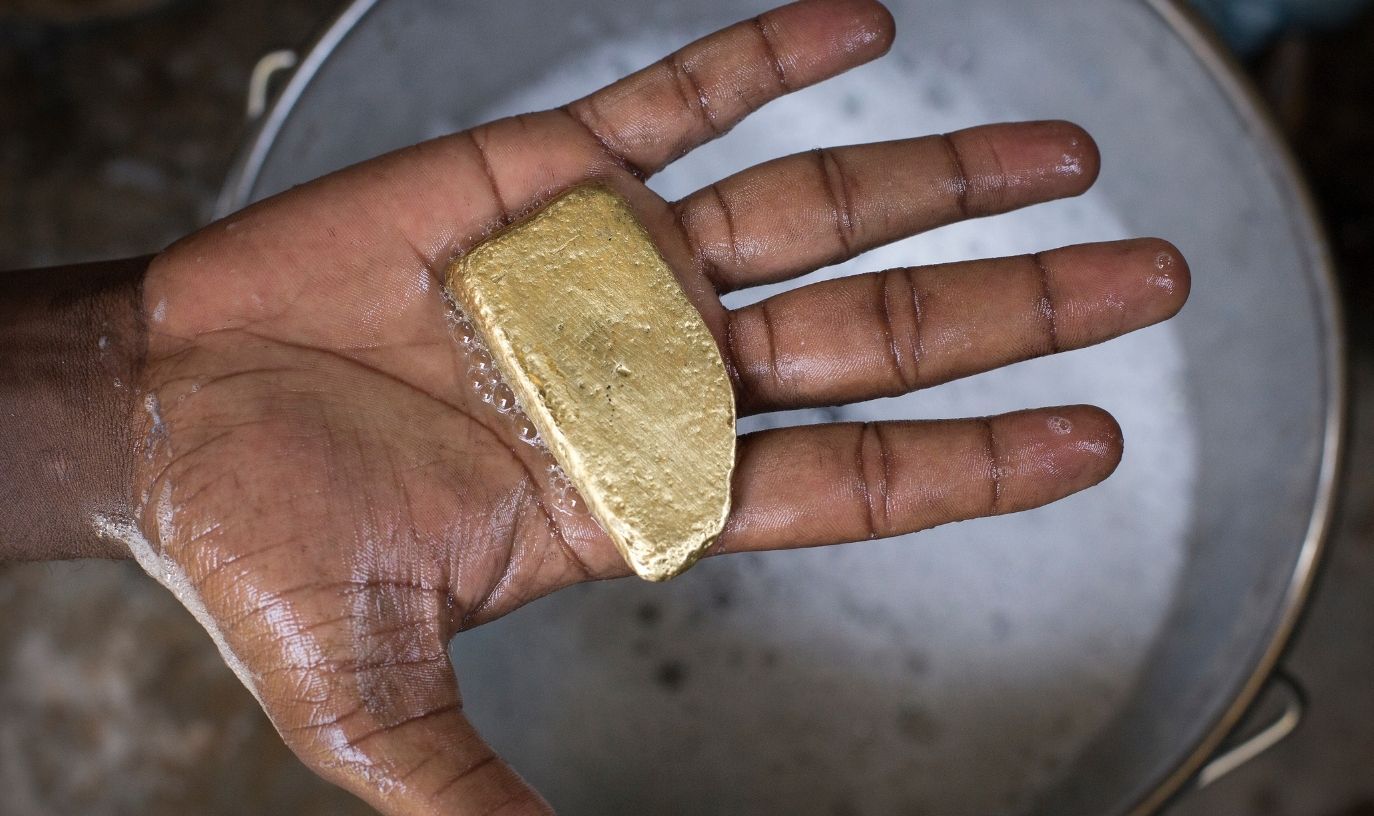- Group of leading advocacy organizations say new London Bullion Market Association (LBMA) initiative on responsible gold has the potential to impact the conflict gold trade.
- Dubai is chokepoint for conflict gold: over $3 billion in high-risk gold including conflict gold from East and Central Africa flows to Dubai annually.
- The UN, NGOs, governments, industry have tried engaging Dubai, other gold centers for over a decade to reform to no avail.
- Industry should also proactively source and help unlock capital flows for responsibly mined artisanal gold, which is a key barrier to scaling and sustainability.
November 25, 2020 (Washington, D.C., London, Ottawa) – The gold industry’s new initiative to push gold bullion centers from Dubai to Switzerland to reform and fully implement consistent and credible responsible sourcing standards can have a strong positive impact on the deadly conflict gold trade, said a group of leading advocacy NGOs. It should be paired with proactive efforts to incentivize industry sourcing of responsibly mined artisanal gold, Global Witness, IMPACT, and The Sentry said.
Gold continues to fuel armed conflict, human rights violations, and corruption in countries from the Democratic Republic of Congo (DRC) to Sudan to Venezuela. Despite a decade of global due diligence guidance and legislation on conflict minerals, conflict and high-risk gold from sub-Saharan Africa, Afghanistan, and Latin America continues to enter global markets largely unchecked via Dubai, United Arab Emirates (UAE). The UAE exports its gold to other international bullion centers including Switzerland, India, Turkey, or other global gold trading centers.
Joanne Lebert, Executive Director of IMPACT, said: “The LBMA has taken an important step forward to encourage responsible sourcing. Tightening controls on recycled gold and illicit trade are key, but it’s now up to industry to not leave artisanal miners behind. Unlocking capital in support of scaling responsible artisanal gold is now more important than ever and the LBMA could play an even greater role by leveraging its influence to bolster existing efforts to attract formal financing and investment to the sector.”
Sasha Lezhnev, Deputy Director of Policy at The Sentry, said: “The alarm bells are ringing in Dubai and other global gold centers now on conflict gold, as this is the first time that industry has applied real leverage to them to seriously reform. The UAE government urgently needs to close its policy loopholes that allow conflict gold to enter the country en masse, for instance by banning cash for gold transactions, or risk getting cut off from global gold markets.”
Alex Kopp, Campaigner at Global Witness said: “Dubai is a main concern but other bullion centres also need to do more. This includes Switzerland, which at the moment does not have any noteworthy government oversight of responsible gold sourcing despite processing two thirds of the world’s gold. We have identified a Swiss entity dealing with a company in Dubai linked to conflict gold from Sudan.”
Several NGO reports in recent years have highlighted the role global gold bullion centers have on conflict gold, from The Sentry’s advisory, “Understanding Money Laundering Risks in the Conflict Gold Trade From East and Central Africa to Dubai and Onward,” to IMPACT’s “A Golden Web: How India Became One of the World’s Largest Gold Smuggling Hubs,” to Global Witness’ “Beneath the Shine: A Tale of Two Gold Refiners.”
Importantly, in its recently published Responsible Sourcing Report, the LBMA found that 55 percent of the origin of gold is declared as recycled. Artisanally-mined gold from these high-risk countries is often smuggled into the UAE and other trading centers. Its provenance can be hidden by mixing with other gold, including recycled gold.
Four key factors in several international gold bullion centers allow for the smuggling and trade of conflict and high-risk gold:
- Weak customs controls
- Inadequate oversight of gold trading markets, e.g. gold souks
- Continued allowance of large cash transactions and the circumventing of formal banking channels via the use of informal payment systems
- Inadequate oversight of refiners
-30-
Media contact
Zuzia Danielski,
Communications Director, IMPACT
+1-613-263-0661
zdanielski@impacttransform.org

